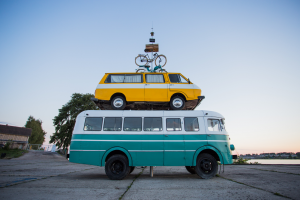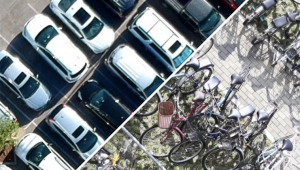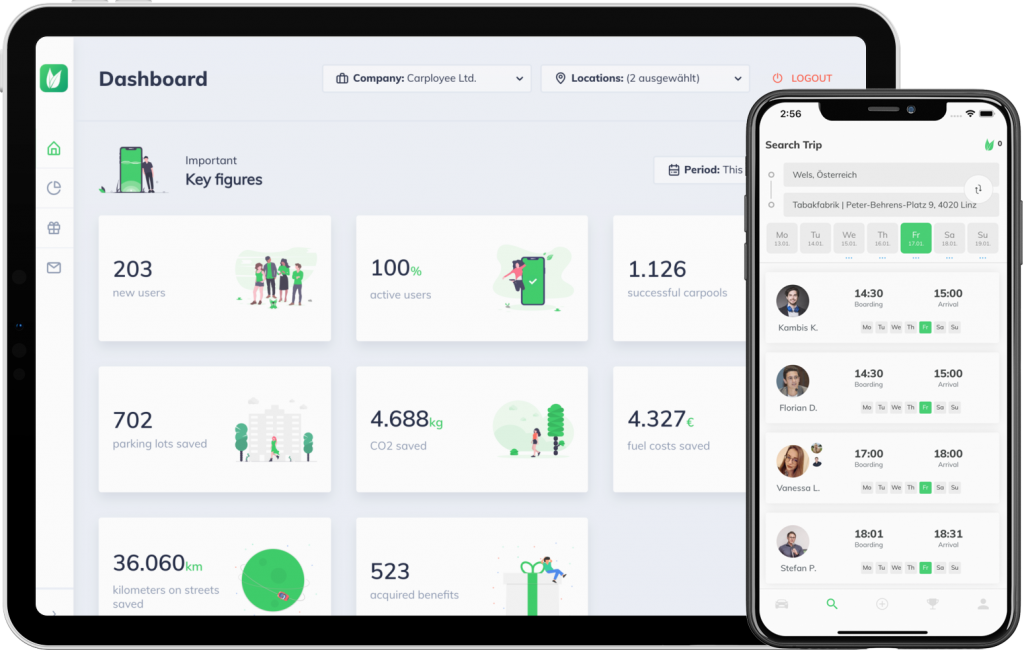Our society tends to regard crises as bad and threatening when they have already set foot in our door and are changing our lives acutely and massively. Take the Corona crisis, for example – a term that, along with “mouth and nose mask”, “social distancing” and “safety distance”, is certainly one of the most promising candidates for the most annoying word of 2020. The climate crisis, on the other hand, has again disappeared from our minds – it is “only” slowly and continuously becoming a problem. Yet, it is precisely now, in the acute crisis, that we should find solutions for climate change.
Change meets headwind
The health and economic threat posed by the new virus cannot be denied – but what we as a society should do is to change our attitude to the current situation. There are areas in Austria – no, worldwide – that have been deadlocked for years and have not been adapted to current conditions.
Perhaps you are familiar with this situation: You want to push ahead with changes in your company which, after an initial period of familiarization, will bring positive changes for all – for example: the switch to e-cars as company cars. Despite all the best arguments, you only encounter headwinds at first. If you have managed to assert yourself anyway, the mild breeze will briefly turn into a rough storm, until … yes, until the people concerned slowly test the newly introduced measures themselves, put aside their prejudices and slowly but surely talk about the advantages.
No chance for inertia in the corona crisis
But why is this so? Why does society first of all defend itself against upcoming changes? The reasons are inertia, deadlocked routines and the much-cited comfort zone. And the most difficult step out of such a situation is the very first – changing habits.
Thus, to the positive aspect of the crisis: Corona has done what you as a superior or supervisor or as a managing director should only do with caution and a lot of empathy and sensitivity – the virus has confronted everyone involved with a fundamental change of conditions and turned our everyday lives upside down without notice.
In short: The first step has been taken. The deadlocked routines have been broken and any protest against them is pointless. The most difficult challenge has already been mastered. The ship has set sail – now it is up to you as captain on board to set the destination and take the compass in your hand.
Mobility in change
One thing is clear: Personal mobility is changing fundamentally during the Corona crisis – both in private and business life. However, it is rather unclear where the journey will ultimately lead to. There are many estimates of this, but some of them are completely contradictory. One example: According to a survey by Deloitte, the use of e-scooters is expected to increase significantly as a result of the crisis. In fact, however, some of the most important providers withdrew from Europe during the first lockdown, at least temporarily, because the business model was no longer profitable in some cases.
The Vienna University of Technology (TU-Vienna) prepared a study on the change in mobility in Austria during the first lockdown (with a focus on training and jobs), in which mainly women and men between 19 and 39 years participated. Almost 63% of the approximately 3,100 participants live in the Vienna area. Nearly 55 % of the participants were employees.
According to this study, the use of public transportation in urban areas has decreased from 53.0% to 1.8%. Of course, the categories “Home Office” and “Distance Learning” had the largest increase – although here it can be assumed that these values dropped after the first lockdown. A change in the modal split – i.e. the choice of means of transport – towards car use is also clearly discernible, and it is assumed that this is likely to be noticeable in the medium and long term. After all, the car is our safe space, which no foreign possibly sick person can enter.
Positive effects of the Corona crisis
During the first lockdown, you could literally see, smell and hear the relief of the environment. While most people worked in the home office and therefore did not participate in rush hour traffic, one could feel a significantly improved air quality while having a walk outside.
And the change was not just noticeable – it produced measurable results. According to a study published in the scientific magazine “Natural Climate Change”, this involuntary lockdown reduced global CO2 emissions by 17% – in Austria, almost a third of emissions were saved.
Austria could even succeed in achieving the climate targets for the period 2013 to 2020, after the required reduction in greenhouse gas emissions had only been achieved in 2013 and 2016.
But how does a shift of the modal split towards passenger cars fit into this picture? How could the private car, which for a long time has been regarded as almost the root of all evil in the climate crisis, contribute to a positive long-term climate balance?
Well, the problem is not the car per se – the problem is our use. On average, there is one person per trip in most cars. A trend that could even be further expanded by COVID.
The company mobility concept
But this is precisely the time when you can have a decisive influence on the mobility behavior in your company and thus also on the number of people per car. We remember: Old routines were interrupted, new ones have to be formed straight away.
And you can and should use this time to influence the way your employees commute to work – in favor of more sustainability and a better atmosphere (at work).
These three steps should be implemented now:
- Determine the status quo and interview employees
What about the mobility of your employees? How is their daily way to work organized? How do business trips usually done? Compare the situation before, during and after the first lockdown. Get a clear picture of the current conditions. It is recommended to conduct an employee survey, with which you should also take a look into the future: Is there any interest and demand for changes in mobility? After all, your employees know best where the shoe is pinching.
- Building alliances and fishing for funding
Now you should look for people in your company who might also be interested in a company mobility concept – with whom you can then work out ideas together and promote and advertise within the company. Financing is also an issue that is better dealt with sooner than later. Various subsidies at state and federal level aim to support companies in shaping sustainable employee mobility.
- Developing and implementing measures
There are dozens of approaches and concepts for making employee mobility more ecological, cost-effective and social. Now your task is to select, adapt and implement the appropriate measure(s). Certainly not an easy task! But the expected cost savings, the reduction of negative environmental impacts and the positive effects on employee satisfaction clearly speak for themselves.
It is advisable to consult a competent partner from the very beginning to help you make the right decisions. As part of our new UpScore Mobility Audit, we conduct extensive analyses and simulations to evaluate employee mobility and derive improvement measures. We show how companies can use the Corona crisis to identify promising options for action and improvement in the areas of mobility, CSR and HR.
How could a Mobility Audit look like? What measures could be taken? What is actually meant by a mobility concept? We will tell you in our next blog article. Stay tuned!
Sources:
Coverimage by Anna Shvets from Pexels
https://www2.deloitte.com/ch/de/pages/public-sector/articles/mobilitaet-nach-der-corona-krise.html
https://blog.fvv.tuwien.ac.at/corona/covid-19-questionnaire-results-austria-de/








